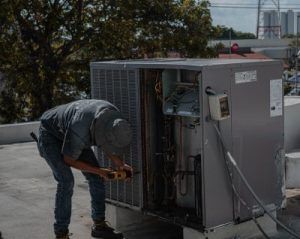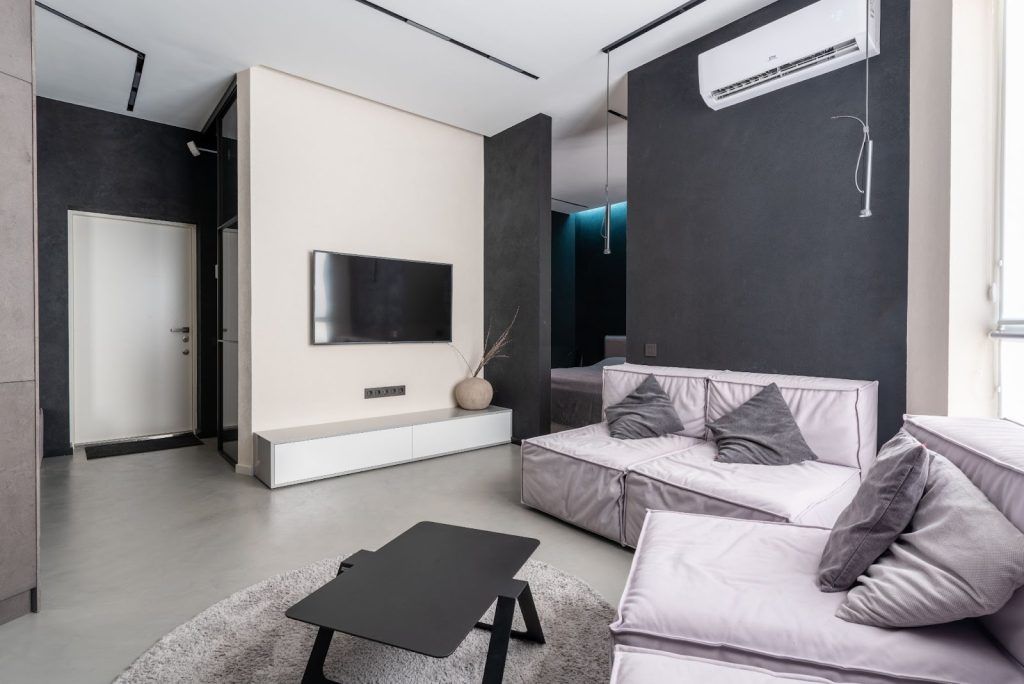Be it a pouring summer evening or a dry winter night, HVAC systems in our homes decide how the rest of our season will be. It means that your HVAC system will be running all year. There is no denying the fact that a new system comes with a significant monetary expense.
So, if you have to choose one, take your time and learn as much as you can about it, from HVAC piping and HVAC tools to the amount of fuel it utilizes.
This section is a detailed account of how the right HVAC system can make your home heaven and how the wrong one can end in complete misery.
Difference Between HVAC Piping of Two Systems

Image Source: Pexels.com
For residential purposes, you will mainly encounter two types of HVAC systems: furnaces and boilers.
The current market has the best heating boilers and furnaces for every house, from small to large. Most people assume that the only difference between the two is semantics. Sure, both systems keep your house warm, but the method through which that warm air is generated differs. So, before shopping for one, you must know how both work.
Boilers generate warm air through the heated water in a tank, which circulates through pipes to different baseboard heaters or radiators located inside the house. However, furnaces combust fuel to generate heat, which reaches the living spaces of your home through ducts.”
Pros of Choosing the Right HVAC System for Your Home
When it comes to keeping your home comfortable, the choice of HVAC tools and supplies plays a key role. Here’s a list of benefits that come with a good HVAC system:
1. Improved Air Quality
We cannot help but open our list with the blessing of having clean air at your home. An HVAC system can make it easier to breathe by removing pollen, dust, and other allergens from the air. It can also control the level of humidity, which makes the air quality even better.
Anyone who suffers from allergies, asthma, or other respiratory conditions knows how important it is to have good air quality at home.
2. Consistent Temperature
Another great thing about owning a good HVAC system is that it can help keep your home at a consistent temperature. You will be able to set the temperature for your entire home and have it stay there, so there will be no more hot or cold spots. You will be grateful for this feature during the months when the temperature varies every other day.
As a result, work with a reputable professional who understands the best HVAC system for your home.
3. Save Money on Bills
With an efficient HVAC system, you might be able to cut down significantly on your energy bills. A reliable system will not waste energy by running your air conditioner or heater when it is not necessary. Moreover, a system with proper supplies will do its work in less time, thus reducing energy costs further.
You can seek a professional for an annual survey to ensure your system is working efficiently.
4. Return on Investment
There is no doubt about the fact that a high-quality system is one of the greatest investments for your home. It will last for years with proper maintenance and service. So, you will not only see immediate improvements in your living standards but a long-term benefit in terms of savings as well.
Therefore, if you are planning to get a new HVAC system or replace the existing one, contact a trustworthy professional.
Cons of Overlooking the Importance of a Good HVAC System
The core aim of getting an HVAC system is to increase the ease and comfort of your home. But even if there is the slightest problem with HVAC piping, fittings, or sizing, you can end up in misery.
1. Loud Noises
A healthy HVAC system runs smoothly and quietly. You might hear a minor hum only when the system kicks on, which is mostly unnoticeable. However, poor-quality HVAC piping or ductwork can lead to loud noises disrupting your life as you go about your routine or lay down to rest.
A system chosen without thought and research will have you contacting the service team more often. Consequently, it will take a toll on your annual budget.
2. Poor Reliability
Nothing is more annoying than feeling uncomfortable inside your home on a hot summer day or the coldest winter night. It is highly likely to happen when your air conditioning system is not the right type for your house.
Moreover, it will not effectively filter air as it is supposed to. As a result, your place will be home to pollutants like dirt, dust, and allergens.
3. Wear and Tear
Every piece of mechanical equipment fails at some point. But that point is likely to arrive earlier if your HVAC system is not the right fit for your residence. The machinery will start breaking down, and the HVAC transformer will probably wear out.
If your HVAC system is at risk of expiring, you will find yourself in the grind of finding another one shortly after buying one.
4. Shorter Lifespan
An air conditioner with poor ductwork, fittings, and damaged parts will still attempt to do its job. But it will have to work around the clock to meet the temperature reading on the thermostat. It will consume more energy, thus shortening its overall lifespan.
So, it is once again a crucial reason why you need to consider it before giving your HVAC contract to a service provider or buying HVAC supplies.
Wrapping Up
If you want to install a new system in your home, consult with your architect first. He might suggest you talk to a heating engineer if your building presents unusual demands. All this information will be necessary for your meeting with an HVAC contractor, so you’d better obtain it beforehand.
Once you walk them through your needs and expectations, they will suggest relevant solutions. If you are tight on capital, focus on getting the essentials only or updating the existing system. You might want to extend it by adding a humidification and filtration system.
However, consider added comfort, like radiant floor heating, if your budget allows it.
Featured Image Source: Pexels.com









 The 2024 virtual Men’s Round Table will be held Q4, 2024, date TBD.
The 2024 virtual Men’s Round Table will be held Q4, 2024, date TBD.













